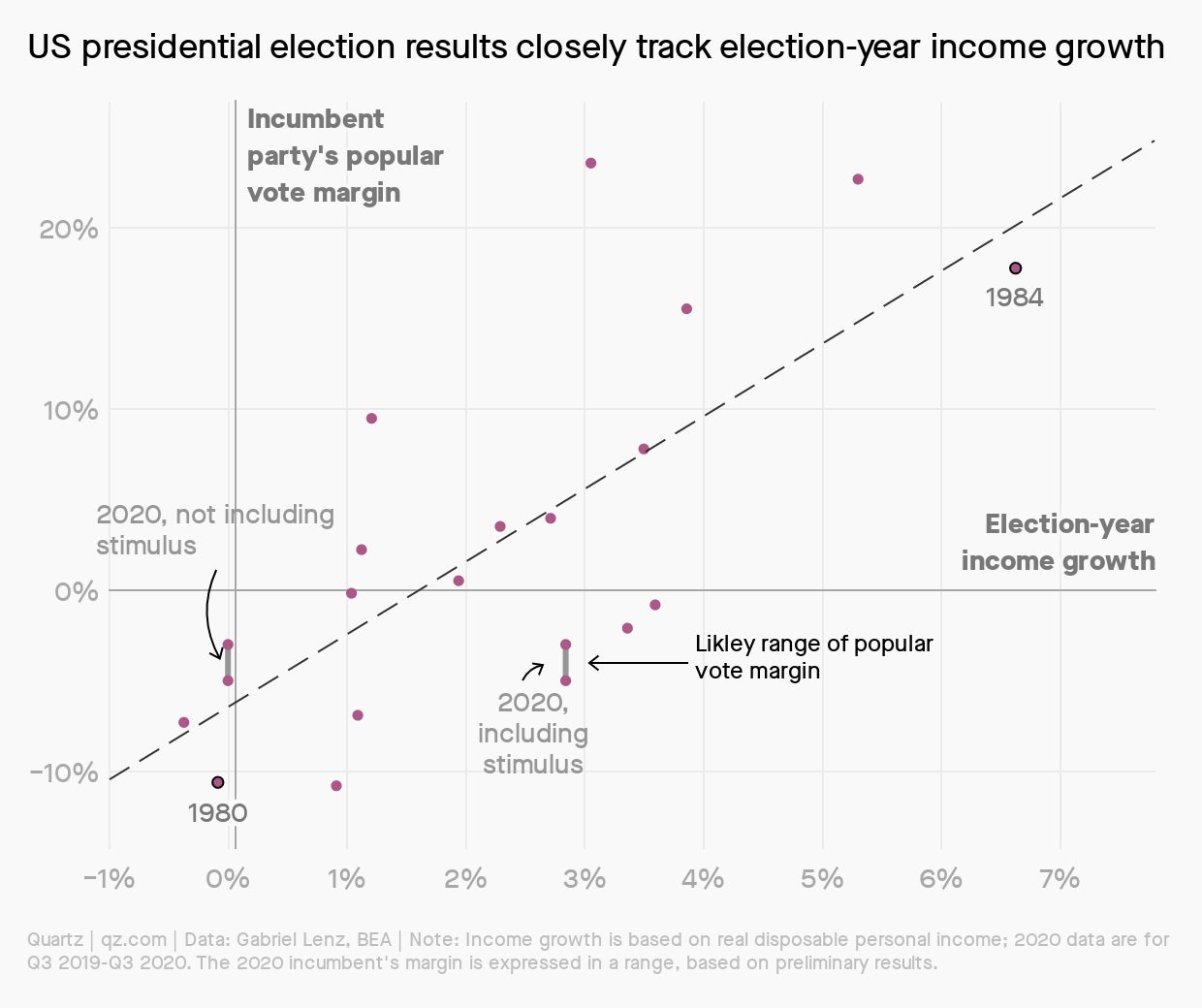Biden’s embarrassment, Pfizer excitement, #freeBritney latest
Good morning, Quartz readers!

Good morning, Quartz readers!
Here’s what you need to know
Biden called Trump’s refusal to concede “an embarrassment.” The outgoing president continues to make baseless allegations of fraud in an election that isn’t close, and in which his own party won control of the Senate. Lawsuits are being quickly dismissed. Meanwhile, Joe Biden is building his transition team and has spoken to many world leaders.
The most exciting thing about Pfizer’s Covid-19 vaccine isn’t that it works. If it does get approval from regulatory bodies, it would be the first vaccine that mounts a defense against pathogens before they even appear, which could be useful in future pandemics. The Pfizer news was also good for short sellers who bet against pandemic stars like Peloton and Grubhub, while Russia also claims it has a 92% successful vaccine.
China cracked down on tech companies Beijing proposed anti–monopoly rules for internet companies on the eve of e-commerce giant Alibaba’s annual Single’s Day extravaganza, a major shopping event. This is just a week after the government stopped the dual IPO of Ant Group, an Alibaba affiliate.
India’s ruling coalition won a major state election. Bihar, which is in northern India and has a population of more than 120 million (bigger than California, Texas, New York, and Florida put together), remained under the control of the political group led by prime minister Narendra Modi. It was the first big Indian election in the pandemic.
The rebirth of cool

Pop quiz, hot shot. Those shoes you think are cool—what kind of cool are they?
🕶 Niche cool: Does a small group of people believe that those shoes are cool because the masses haven’t discovered them yet? Mukesh Ambani’s Ajio is trying to tap into the sneaker collector niche, and Indian sneakerheads are skeptical.
🛒 Mass cool: Are those shoes coveted by mainstream feet? Though it has firmly niche-cool roots, Supreme, which was just acquired by VF Corp—owner of brands such as Vans, The North Face, Timberland, and Dickies—has been skating towards mass cool status for years.
Charting income growth’s effect on US voting
US economic fortunes have been influencing presidential outcomes since the times of George Washington. Over the past two and a half centuries, Americans have tended to vote out incumbents when the economy sours, and rewarded them with another term when it’s thriving, a phenomenon that political scientists call “retrospective economic voting.”

The state of the economy is not the only factor that matters, of course. As the US becomes more politically polarized, there is some evidence that partisanship is playing a bigger role in elections, and retrospective voting a smaller one. Still, looking at the 2020 election through the lens of the economy offers a useful starting point for gauging the result. Ana Campoy breaks it down.
Climate tech funding, by the numbers
In 2019, nearly six cents of every venture dollar invested went into climate tech, according to PwC. The category is broad, and just getting broader, including everything from data center energy efficiency algorithms to electric airplanes.
$10-16 billion: Amount that 500 climate tech companies collected from investors last year, most of it in the US, China, and Europe
20: Countries that have net-zero targets on the books (compared to zero in 2006)
120: Countries working on adopting some form of carbon neutrality
300: Major global companies committed to carbon neutrality by 2050
200: Institutional investors managing $29 trillion in assets who have asked executives at top US greenhouse gas emitters to disclose their plans to limit global warming
Is climate tech booming, or on its way to another bust? Read more in our guide to climate tech’s second shot.
✦ It’s Members Week! We’re celebrating two years of Quartz membership, and we’d like to invite you to invest in your future reader satisfaction at 50% off, using code MEMBERSWEEK. (This offer does not apply to Quartz Japan memberships.)
Surprising discoveries
Just a casual golf shot skimming across water and landing in the hole. Spain’s Jon Rahm managed the extraordinary feat while preparing for the Masters, which starts tomorrow.
The #freeBritney campaign took another twist. A US court ruled that the singer’s father can retain control of her estate and even her personal life.
New Zealand’s bird of the year competition sees voter fraud. The organizer said it is unclear who cast the over 1,500 fraudulent votes for the little-spotted Kiwi.
A student found a new species of prehistoric flying reptile in a museum drawer. The specimen was gathering dust after being mislabeled as a shark fin skeleton.
An Indian Instagram account tells stories of “forbidden” love. The India Love Project celebrates unions that break “the shackles of faith, caste, ethnicity and gender.”
Our best wishes for a productive day. Please send any news, comments, misplaced fossils, and the real winning bird to [email protected]. Get the most out of Quartz by downloading our iOS app and becoming a member. Today’s Daily Brief was brought to you by Hasit Shah, Jane Li, Mary Hui, Tripti Lahiri, Liz Webber, and Susan Howson.